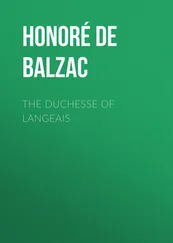Dino Dorothée - Memoirs of the Duchesse de Dino (Afterwards Duchesse de Talleyrand et de Sagan), 1836-1840
Здесь есть возможность читать онлайн «Dino Dorothée - Memoirs of the Duchesse de Dino (Afterwards Duchesse de Talleyrand et de Sagan), 1836-1840» — ознакомительный отрывок электронной книги совершенно бесплатно, а после прочтения отрывка купить полную версию. В некоторых случаях можно слушать аудио, скачать через торрент в формате fb2 и присутствует краткое содержание. Жанр: foreign_antique, foreign_prose, на английском языке. Описание произведения, (предисловие) а так же отзывы посетителей доступны на портале библиотеки ЛибКат.
- Название:Memoirs of the Duchesse de Dino (Afterwards Duchesse de Talleyrand et de Sagan), 1836-1840
- Автор:
- Жанр:
- Год:неизвестен
- ISBN:нет данных
- Рейтинг книги:4 / 5. Голосов: 1
-
Избранное:Добавить в избранное
- Отзывы:
-
Ваша оценка:
- 80
- 1
- 2
- 3
- 4
- 5
Memoirs of the Duchesse de Dino (Afterwards Duchesse de Talleyrand et de Sagan), 1836-1840: краткое содержание, описание и аннотация
Предлагаем к чтению аннотацию, описание, краткое содержание или предисловие (зависит от того, что написал сам автор книги «Memoirs of the Duchesse de Dino (Afterwards Duchesse de Talleyrand et de Sagan), 1836-1840»). Если вы не нашли необходимую информацию о книге — напишите в комментариях, мы постараемся отыскать её.
Memoirs of the Duchesse de Dino (Afterwards Duchesse de Talleyrand et de Sagan), 1836-1840 — читать онлайн ознакомительный отрывок
Ниже представлен текст книги, разбитый по страницам. Система сохранения места последней прочитанной страницы, позволяет с удобством читать онлайн бесплатно книгу «Memoirs of the Duchesse de Dino (Afterwards Duchesse de Talleyrand et de Sagan), 1836-1840», без необходимости каждый раз заново искать на чём Вы остановились. Поставьте закладку, и сможете в любой момент перейти на страницу, на которой закончили чтение.
Интервал:
Закладка:
Paris, March 18, 1836. – With regard to my reflections upon Bossuet, 13 13 Extract from a letter.
you praise my attitude somewhat unduly. I have, indeed, a love of truth, and the world, with the dreadful misery which it contains, fills me with disgust; I have learned to fear the contagion of the world, under which I have suffered too long; I examine myself seriously, and am horrified to find myself immersed in the sorrow and grief which are the lot of worldly people and are the destruction of peace of mind, charity, and purity. I make some attempt to burst my bonds and rise to a purer region; but none the less my efforts are usually impotent, and my struggles vain and futile. As a rule I cannot tell whether the moral weariness which overwhelms me is due to the sad sight of the deplorable agitations amid which I live, or to the no less deplorable agitation of my inward life. When we have spent years amid the struggles of life and desire to change our path, however remote may be the road which leads us forward, we find ourselves a burden to ourselves; we can neither go forward with our load nor throw it off straightway; we stumble and retrace our steps; we prove ourselves but feeble travellers, and our goal recedes as our desire to reach it increases. Such is my case…
Yesterday, towards the end of the morning, M. de Tocqueville came to pay his call; I like him. The Duc de Noailles also called; he is not so attractive, though by no means disagreeable. Another caller was Berryer, who might be most agreeable if his mind and bearing did not betray traces of low life, which have struck my notice. However, the conversation never flagged, as the first visitor has sound views, the second good judgment, and the third that mental alacrity which enables him to apprehend a point at once. The conversation of these distinguished men was concerned only with facts, and not with people: names were not mentioned; there was no gossip, no bitterness or extravagance. The talk was as it should always be, especially at a lady's house.
Paris, March 20, 1836. – How deep a melancholy may be inspired by the first fine spring day, when it fails to harmonise with one's own frame of mind! For forty-eight hours the weather has been mild and lovely, the atmosphere filled with sweetness and light and breathing joy and happiness; new life, new warmth and pleasure are springing into being, and I feel suffocated in this town. The public promenades cannot take the place of the country, and nothing can bring back the sweet springtime of last year, with its flowers, its wide horizon, and its freshness, in which it was so easy to take breath. I would worship any one who could give me back these things! And instead I drive with Madame de Lieven through the Bois de Boulogne in a closed carriage! Such was my occupation yesterday, while M. de Talleyrand was at the Academy of Moral and Political Science, voting for M. de Tocqueville, who failed to secure election.
Paris, March 24, 1836. – The Princess Belgiojoso is rather striking than beautiful: she is extremely pale, her eyes are too far apart, her head too square, her mouth large and her teeth discoloured; but she has a good nose, and her figure would be pretty if it were somewhat fuller; her hair is jet black, and she wears striking dresses; she has intellect, but wants balance, and is full of artistic whims and inconsistencies; her manner is intentionally and skilfully natural, sufficiently to hide her affectation, while her affectation seems to counterbalance a certain innate vulgarity, which her flatterers style an untamed nature. Such is my impression of this personage, with whom I have but the slightest acquaintance.
M. Royer-Collard found me reading the "Imitation" the other day, and brought me yesterday a pretty little copy which he has had from his youth, and has almost invariably carried about with him. I have been deeply touched by this gift, and regard it as a most precious possession. My only objection to this little book is the fact that it is in Latin: I never knew Latin well, and I find that I have now forgotten it. I think I shall have to take it up again.
M. Royer asked me to give him in exchange some book which I had constantly read. I gave him a copy of Bossuet's "Funeral Orations," deeply scored with my marks; the ribbon-mark is torn away, but a hairpin happened to be marking one of the passages in the oration on the Princess Palatine, which had a special meaning for myself. M. Royer accepted the little volume most gratefully.
Yesterday evening I went to the Italian Opera, and Berryer paid a visit to my box. His mind was full of the morning session in the Chamber of Deputies and of M. Guizot's formidable speech. M. Thiers proposes to reply this morning, as, indeed, he must, unless he wishes to see M. Guizot become paramount in the Chamber; in short, we are to see the real adversaries engaged in a hand-to-hand struggle. This is an event, and is so regarded. Berryer described the whole affair marvellously well, without bitterness against any one, and without a word more than was necessary to make the situation clear. In ten minutes he had told me everything.
Paris, March 27, 1836. – Yesterday morning I had the honour of seeing the King with Madame Adélaïde; his conversation was charming. He was kind enough to tell me stories of his marriage, of the Court of Palermo and the famous Queen Caroline. I also heard that Prince Charles of Naples and Miss Penelope arrived here within the last two days in a state of complete destitution. This was an embarrassing event, and in a sense discreditable, especially to the Queen. 14 14 Prince Charles of Naples, brother of the Duchesse de Berry, was the nephew of Queen Marie Amélie.
I have reason to believe that Thiers did not reply forthwith to Guizot's great speech the other day for reasons of prudence, and in obedience to the orders of his superiors; but he will lose nothing by waiting, and we shall see a striking explosion upon the next opportunity. I think the authorities were unwilling to regard the question as a duel between two individuals, and have preferred to let the effect of the first speech wear off before offering a reply. In any case, an enormous majority responded to the effort that was made. The only vexatious point is the number of concessions offered by M. Sauzet in his speech, and on this subject I have noticed some strong discontent.
M. de Tocqueville's name was proposed, without his knowledge, to the Academy of Political and Moral Science by M. Cousin; M. Tocqueville has told me that he did not wish to seek election again. As the grandson of M. de Malesherbes, he has no desire to join an Academy of mere figureheads, of which, for the most part, this institution is composed.
Paris, March 29, 1836. – It is certain that all idea of intervention in Spain has been abandoned by every grade within the Governmental hierarchy; some had never entertained the project, and others have dropped it. I think there is no reason to fear any imprudence whatever in this direction.
Rumour is entirely occupied with a conversation between the King and Guizot, in which the former is said to have expressed his extreme displeasure with the dates which were given as marking the good system of administration. The King said that the system was not the work of any individual, but was his own, and that the only date he would recognise was his own date, August 9. He added that it was bad policy to attack the only Cabinet which could command a majority at that moment. Guizot replied that if the King cared to test the matter he would see that the majority was to be found elsewhere. "Not so," returned the King; "it is you, sir, who are deluded, and you fail to see that the course you are pursuing rather divides you from the points at issue than brings you nearer to them. If you continue, you will perhaps force me to take a measure which I detest, and which will assuredly be more displeasing to yourself; that measure is a dissolution of the Chamber, please remember." I believe this conversation to be literally exact, and I think it will induce people to consider their words and deeds more carefully, the more so as the doctrinaires, who know perfectly well that they have no chance of re-election, will shrink from a dissolution.
Читать дальшеИнтервал:
Закладка:
Похожие книги на «Memoirs of the Duchesse de Dino (Afterwards Duchesse de Talleyrand et de Sagan), 1836-1840»
Представляем Вашему вниманию похожие книги на «Memoirs of the Duchesse de Dino (Afterwards Duchesse de Talleyrand et de Sagan), 1836-1840» списком для выбора. Мы отобрали схожую по названию и смыслу литературу в надежде предоставить читателям больше вариантов отыскать новые, интересные, ещё непрочитанные произведения.
Обсуждение, отзывы о книге «Memoirs of the Duchesse de Dino (Afterwards Duchesse de Talleyrand et de Sagan), 1836-1840» и просто собственные мнения читателей. Оставьте ваши комментарии, напишите, что Вы думаете о произведении, его смысле или главных героях. Укажите что конкретно понравилось, а что нет, и почему Вы так считаете.












